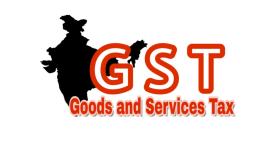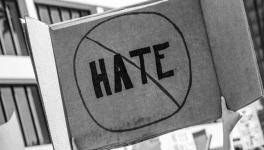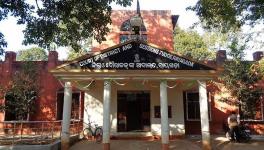Lives of Marginalised Communities Worsened Under NDA in 2019: Governance Report
Life only became worse for women, dalits, tribals and LBGTQ+ communities and children during the first year of the NDA II government, according to the Governance Review Report published by the Wada Na Todo Abhiyan (WNTA) on Thursday.
WNTA is a campaign initiated in 2004 by civil society organisations (CSOs) and concerned citizens to promote governance accountability towards ending poverty and social exclusion. It tracks government promises and commitments at the national and international levels.
The NDA government led by Prime Minister Narendra Modi and his Bharatiya Janata Party secured a comfortable majority in the May 2019 general elections. It has been a tumultuous year since, said the report, exhibited first by the introduction of the Citizenship Amendment Act and later, by the lockdown to contain the spread of COVID-19.
Economic Slowdown
The Indian economy began stumbling long before the pandemic became a part of our lives, pointed out the report. It said, “A slowing down of the economy and the dip in India’s growth rate was only responded to in the shape of an ambitious plan for a USD 5 trillion economy.The need has been to revive private consumption demand by putting money into the hands of the people.” Moreover, it said that the slowdown in GDP growth has a negative impact on the increase in tax revenue collection.
It added, “As the analysis of the budget goes, there are gaps in the provisions for marginalised communities, which show that there is still a long way to go to build a compassionate and ‘Caring Society’, keeping the specific requirements of the poorest and the most marginalised sections of the society in focus. Hence, there is a need for improving not only the responsiveness of budgeting for schemes related to marginalised population but also reform in the policy design itself.”
The authors of the report argued that the signs of the stumbling economy were visible during the year as the banking system wailed under the burden of bad loans and non-performing assets. The decline in NPAs happened mainly due to huge loan write offs done by Indian banks, especially public sector banks, in the recent years. Between 2014 and 2019, scheduled commercial banks wrote off Rs 6.35 lakh crore from their books and have recovered only 9.7% i.e., Rs 62,220 crores from the loans that banks had written off.
The report said, “Write offs with negligible recovery are nothing but corporate loan waivers.” It said, “From claims of Rs 4.13 lakh crore in 221 cases resolved, only 43%, i.e., Rs 1.84 lakh crores have been recovered and banks took a loss of Rs 2.29 lakh crore. Out of 12 initial cases identified by RBI for resolution, only eight cases have been resolved in three years with banks taking hair-cut as high as 90%.”
Inequality
The chapter on inequality in the report points out that India's tax system favours corporates rather than individuals. In September 2019, corporate tax rates were cut from 30% to 22%. However, the highest tax slab for individuals is 30%.
The report said, “Efforts to reduce inequities should be guided by values of equality, justice and fraternity. A first step to move towards equality is to acknowledge that inequities exist. However, the government has not made any effort over the last year to acknowledge and measure the level of inequities in our country. Instead of being guided by principles of justice which recommends redistribution of income, the government has pushed for regressive taxation measures such as GST that have affected the poor disproportionately.”
The first step to improve the situation, the report suggests, could be putting in place adequate social protection mechanisms for all, to enforce living wages for all workers, to stop labour abuses, protect dignity and rights of migrant workers, and protect the rights of workers to organise, and thereby reduce the gap between informal and formal sector workers.
Impact on Vulnerable Groups
The National Crime Records Bureau (NCRB) data for 2018 released by the government showed an increase in violence and atrocities against Dalit women. The report said, “Dalit women face the brunt of the violence and are doubly vulnerable to discrimination and atrocities as a result of their gender and caste. The latest NCRB data (2018) also reveals that a minimum of eight cases of rape against women from the Scheduled Castes are reported every day — showing an increase in the incidence of systemic sexual violence from the previous year’s NCRB data.”
The marginal allocation of Rs 46.20 crore for the access to justice for Dalit women is both a very small amount to implement the Scheduled Castes and the Scheduled Tribes (Prevention of Atrocities) Act, 1989. It also does not have specific provisions to ensure mechanisms to support survivors of violence and atrocities, the report said.
During the first year of NDA II, India abstained from voting on the renewal of the mandate for an independent expert on protection for LGBT rights in the UN. At the Geneva-based 44-member UN human rights body, 27 countries voted in favour to extend the mandate of the Special Rapporteur for protection against violence and discrimination based on sexual orientation and gender identity for the next three years.
The Onset of Pandemic
The report pointed out that in the wake of the COVID-19 crisis, the government must ensure that no Indian falls into poverty because of health expenses and provide equal chances of survival for the rich and poor through the provision of universal access to free and quality health services.
The authors said that during the lockdown, the pandemic has highlighted the need for adequate housing to be recognised as a pivotal right. The report said, “Simultaneously, the pandemic has brought attention to the nuanced and complex nature of hygiene at a time when physical distancing measures are difficult to implement in overcrowded slums.”
It added, “63.67million urban and rural households across the country do not have adequate housing. The numerical figures reflect an aggregate of those who live in unacceptable conditions as well as those who are homeless and that mirror the face of ‘housing poverty’ in urban India. These are also the people worst affected by the lockdown owing to COVID-19.”
The report highlights the need for Parliament to organise the political system in a way that it will help citizens overcome issues of mis-governance. It said, “This holds particularly true in the light of the COVID-19 pandemic facing the country.”
Get the latest reports & analysis with people's perspective on Protests, movements & deep analytical videos, discussions of the current affairs in your Telegram app. Subscribe to NewsClick's Telegram channel & get Real-Time updates on stories, as they get published on our website.
























